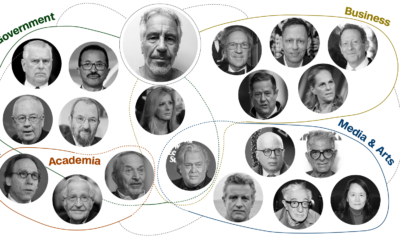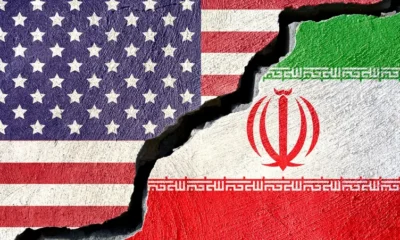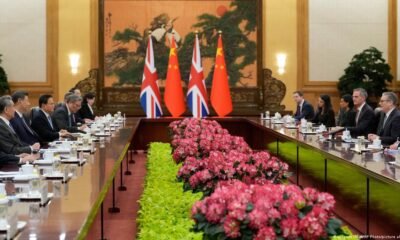TECH
Massive Chinese hack targets global Telecom providers: U.S. officials raise alarms
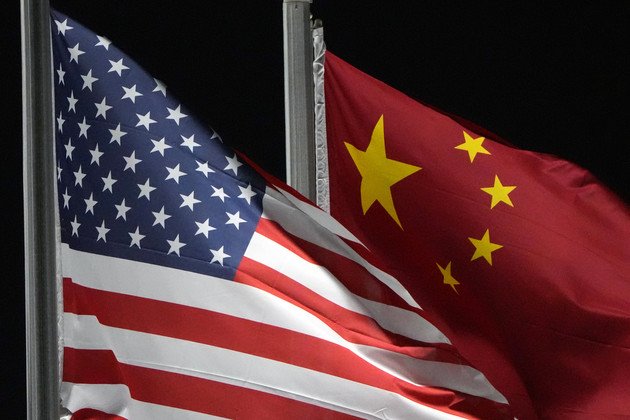
The United States government has revealed that a large-scale hacking operation attributed to a Chinese state-linked group, known as Salt Typhoon, has compromised global telecommunications networks. Officials from the FBI and the Cybersecurity and Infrastructure Security Agency (CISA) disclosed Tuesday that the breach, which began in late spring, remains active and is potentially more extensive than initially thought.
Salt Typhoon’s efforts were detected in the spring and officially announced in October. The group is believed to have infiltrated at least 80 telecommunications and internet providers, including major U.S. companies like AT&T, Verizon, and T-Mobile. By gaining access to sensitive telecom infrastructure, hackers targeted U.S. political figures, national security data, and private communications.
Among the stolen data were call records, private communications, and U.S. court orders submitted under the Communications Assistance for Law Enforcement Act (CALEA). These court orders, which allow intelligence collection through telecom providers, have raised questions about whether the breach extended to classified surveillance operations under the Foreign Intelligence Surveillance Act (FISA). FBI officials have not confirmed this directly.
Although officials did not disclose all affected individuals, reports suggest that the phones of President-elect Donald Trump and Vice President-elect JD Vance were compromised during the election period. The hack has also disrupted critical data flow in the “Capital Region” and impacted political leaders across the U.S.
Internationally, Salt Typhoon leveraged servers across multiple countries to facilitate its activities. However, the U.K. declined to join the Five Eyes intelligence-sharing group’s joint advisory, opting instead for an independent approach to addressing vulnerabilities in its telecommunications infrastructure.
U.S. officials are urging Americans to adopt encrypted communication methods and enhance personal cybersecurity. “We cannot say with certainty that the adversary has been evicted,” noted Jeff Greene, CISA’s executive assistant director for cybersecurity. This highlights ongoing vulnerabilities as agencies scramble to contain the breach.
Senate Intelligence Committee Chair Mark Warner (D-Va.) called the hack the “most serious breach in our history,” while Sen. Mike Rounds (R-S.D.) warned that most unencrypted communications could be subject to review by the Chinese government. The bipartisan urgency underscores the gravity of the intrusion.
This breach reflects a broader trend of cyberattacks from state-sponsored entities targeting critical infrastructure globally. Beyond the immediate political and security risks, this incident raises concerns about the resilience of global telecom systems against increasingly sophisticated cyberthreats.
For the U.S. and its allies, the breach not only necessitates a coordinated international response but also emphasizes the importance of modernizing cyber defense measures to mitigate future risks.
TECH
TikTok Finalizes Deal to Continue Operating in the United States

TikTok has finalized a long-awaited deal to spin off its U.S. operations, securing the future of the popular video app for millions of American users after years of political and legal uncertainty.
In a statement released Thursday, TikTok confirmed the creation of a new U.S.-based joint venture that will operate under what it described as strict national security safeguards, including protections around user data, algorithms, content moderation, and software systems.
Under the agreement, U.S. tech giant Oracle, UAE-based investment firm MGX, and private equity firm Silver Lake will each hold a 15% stake in the new entity. TikTok’s Chinese parent company, ByteDance, will retain a minority share of 19.9%.
President Donald Trump welcomed the deal, calling it a major victory for U.S. interests. “I am so happy to have helped in saving TikTok,” Trump wrote on social media, adding that the platform will now be owned by “Great American Patriots and Investors.”
For TikTok’s more than 200 million users in the United States, the immediate impact is simple: the app is staying online.
While the user experience is not expected to change overnight, key technical shifts are underway. The new U.S. entity will retrain TikTok’s algorithm using American user data, with Oracle overseeing the storage and security of that data — a move aimed at addressing long-standing concerns over Chinese access to sensitive information.
TikTok U.S. CEO Shou Chew will serve on a seven-member board dominated by American executives, including senior leaders from Oracle, Silver Lake, and Abu Dhabi-based MGX.
However, several questions remain unresolved. The deal’s valuation has not been disclosed, and Chinese authorities have yet to publicly comment on the final structure. Some legal experts also argue the arrangement may still fall short of fully separating ByteDance from TikTok’s U.S. operations, as required under U.S. law upheld by the Supreme Court.
The agreement also covers other ByteDance-owned apps, including CapCut and Lemon8, bringing them under the same U.S. security framework.
After briefly going offline earlier this year amid legal uncertainty, TikTok’s future in the U.S. now appears secured — at least for the foreseeable future.
TECH
2025’s Dictionary Mirror: Tech, Toxic Attention, and the Words That Warned Us
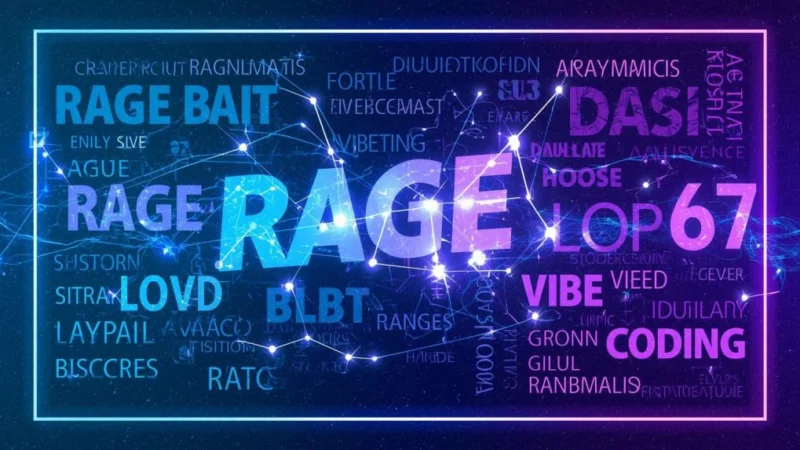
From AI Slop to Rage Bait, 2025’s Words Expose the Age of Outrage, Algorithms, and Parasocial Life.
If you want to understand 2025, skip the speeches and read the vocabulary. This was a year when language didn’t just describe reality—it documented a world rewired by platforms, generative AI, and the emotional economics of outrage. The “Words of the Year” chosen by dictionaries and news outlets weren’t uplifting slogans. They were caution signs.
Cambridge Dictionary pointed to “parasocial,” a term once reserved for celebrity fandom that now includes relationships people form with artificial intelligence. In a year shaped by personalized chatbots, public debate widened from influencers and pop stars to the psychological gravity of AI companions—especially for younger users, who can slide from curiosity into dependency without even noticing the slope.
Oxford University Press went with “rage bait,” content engineered to provoke anger and inflate engagement. It’s the business model of the modern feed: outrage sparks interaction, algorithms amplify it, and people end up mentally exhausted. Oxford’s framing was blunt: paired with last year’s “brain rot,” the concept captures a cycle in which the platforms don’t merely host bad behavior—they reward it.
Other contenders tracked adjacent obsessions. “Aura farming” described the subtle performance of charisma as a form of currency—polishing an online persona until it looks effortless. “Biohack” captured the drive to optimize the body and mind through routines, devices, and supplements. Collins ultimately chose “vibe coding,” a term for a new style of programming where you describe what you want and let machines translate it into code—less “variables and syntax,” more “intent and vibes.” A derogatory term, “clanker,” also floated through shortlists, reflecting how quickly annoyance at machines can harden into cultural slang.
Then came the truly generational wildcard. Dictionary.com leaned into “67” (“six-seven”), a piece of youth slang that even adults can’t reliably decode. Depending on who you ask, it can mean “so-so,” “maybe,” or simply a way to frustrate parents. The meaning almost doesn’t matter; the function does. It’s a reminder that language is also a gatekeeping tool—especially for Gen Alpha, which treats confusion as a feature, not a bug.
Australia’s Macquarie Dictionary chose the term that may haunt the decade: “AI slop”—low-quality content churned out by generative systems, often error-filled and frequently unwanted. If search made everyone a “search engineer,” the slop era demands people become “prompt engineers” just to filter reality from noise. Merriam-Webster and The Economist echoed the same unease, with The Economist even floating “sloptimism”—the idea that platform overload might finally force serious moderation or drive users away.
But the piece turns sharply toward what happens when toxic content isn’t just annoying—when it becomes dangerous. The author argues that slop, disinformation, cyberbullying, and extremist echo chambers create fertile ground for antisemitism and other hate crimes. In Israel, trauma from October 7, 2023 remains raw, while a “war of words” rages globally—where terms like “genocide,” “apartheid,” and “Holocaust” are deployed as weapons. The essay’s point is not that language is always harmless; it is that language can be a battlefield.
Even Hebrew, the text notes, is still searching for its 2025 word—though last year’s winner, “hatufim” (“hostages”), reflected national reality with painful clarity. Suggestions like “redeemed captive” capture a yearning for closure. The search for a word becomes a search for meaning.
That may be the quiet conclusion of 2025’s vocabulary: we are not just living through technological change, but through a struggle over attention, truth, and identity. The year’s standout words—parasocial, rage bait, AI slop—don’t merely define trends. They reveal what we were fighting, what we were becoming, and what we still don’t know how to control.
TECH
Beijing Moves to Set Global AI Rules, Challenging U.S. Tech Dominance
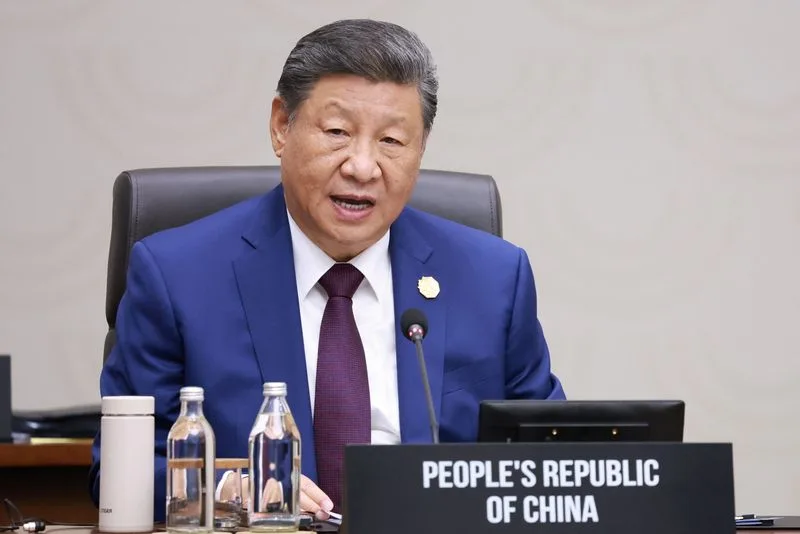
Chinese President Xi Jinping seized the spotlight at the APEC leaders’ summit on Saturday, proposing the creation of a World Artificial Intelligence Cooperation Organization — a global body to regulate and coordinate AI development — in a move widely viewed as Beijing’s bid to challenge U.S. dominance over emerging technology governance.
Xi’s call, delivered at the meeting in Gyeongju, South Korea, marks his first public endorsement of the initiative unveiled earlier this year.
“Artificial intelligence is of great significance for future development and should be made for the benefit of people in all countries and regions,” Xi said, according to China’s state-run Xinhua agency.
He framed AI as a “public good for the international community” and suggested the organization could be headquartered in Shanghai, positioning the city as a new global center for AI diplomacy.
The timing was no accident. U.S. President Donald Trump skipped the leaders’ plenary session, leaving for Washington after a one-on-one meeting with Xi that produced a one-year agreement to ease trade and technology restrictions — a modest détente in a rivalry that has defined global politics for much of the decade.
Xi’s absence of an American counterpart gave him the stage to promote China’s brand of “cooperative multilateralism” as a counterweight to Washington’s go-it-alone approach.
The proposed AI body underscores China’s ambition to shape the rules of the next technological frontier.
While Washington has resisted binding global regulation of AI, Beijing sees governance structures as a lever of influence — allowing it to standardize norms around data, algorithms, and safety protocols according to its own priorities.
Analysts say China hopes to export its model of “algorithmic sovereignty”, where state control over AI aligns with national security and industrial policy goals.
Beijing’s growing AI ecosystem provides tangible backing for that vision. U.S. chipmaker Nvidia remains indispensable to the global AI boom, but Chinese firms such as DeepSeek are rolling out competitive, lower-cost models optimized for locally produced hardware — a strategy that insulates China from U.S. export bans while advancing its technological self-reliance.
Beyond AI, Xi also urged APEC members to support the “free circulation of green technologies,” referencing sectors from batteries to solar panels — areas where Chinese firms already dominate global supply chains.
The summit concluded with the adoption of a joint declaration and agreements on AI governance and aging populations.
China will host the 2026 APEC summit in Shenzhen, a city Xi described as “a symbol of reform and innovation” that rose from fishing village to high-tech powerhouse in four decades.
By pushing for a global AI body and recasting China as a guardian of open cooperation, Xi is staking his claim to define the ethics and economics of artificial intelligence — and signaling that the contest with the United States has entered a new, algorithmic phase.
TECH
U.S. Eyes Sweeping Software Sanctions on China After Rare Earth Retaliation

Trump weighs unprecedented export curbs that could hit everything from jet engines to laptops, escalating the economic war with Beijing.
WASHINGTON, D.C. — The United States is weighing an extraordinary escalation in its tech standoff with China — a plan to restrict nearly any export made using American software, from jet engines to smartphones, in response to Beijing’s rare earth export controls, according to U.S. officials briefed on the matter.
If implemented, the move would weaponize Washington’s dominance in global software architecture — the invisible backbone embedded in everything from chip design to navigation systems — effectively extending U.S. jurisdiction to vast swaths of the global supply chain.
President Donald Trump hinted at the measure earlier this month, threatening to block “any and all critical software” exports to China and to impose 100% tariffs on Chinese goods by November 1.
Officials say the proposal remains under review but signals that Washington is ready to test the outer limits of economic statecraft.
“I will confirm that everything is on the table,” said Treasury Secretary Scott Bessent, adding that any export curbs “will likely be in coordination with our G7 allies.”
The policy — reminiscent of post-Ukraine sanctions on Russia — would bar not just direct U.S. exports but also foreign-made goods that rely on American software tools, potentially upending trade flows and pressuring global manufacturers to choose sides.
A senior official familiar with the discussions said the idea “is to remind Beijing that software is America’s rare earth — and we can close the tap, too.”
Yet the economic risks are immense. Industry analysts warn that such restrictions could boomerang on U.S. tech firms, given how deeply American code and algorithms are integrated into international production.
“You’d hope they only make threats they can live with,” said Emily Kilcrease, a former trade official now at the Center for a New American Security.
China has condemned the potential move as “unilateral economic coercion,” vowing to retaliate if Washington proceeds.
Beijing’s Foreign Ministry accused the U.S. of “long-arm jurisdiction” and hinted that China could expand its own export bans beyond rare earth elements — materials vital for electronics, defense systems, and electric vehicles.
The stakes are rising as Trump prepares to meet Chinese President Xi Jinping later this month in South Korea.
The proposal, insiders say, could serve as leverage ahead of that summit, or as a warning that the U.S. is prepared to match Beijing’s restrictions with full-spectrum economic retaliation.
For now, the White House remains silent, but markets are already reacting. The S&P 500 and Nasdaq both fell sharply following news of the deliberations, as traders braced for what could become the most far-reaching U.S. export control in history.
Comment
AI Hackers at the Gates: Europe’s Airports Just Faced the Future of Cyberwarfare

The ransomware attack that brought check-in systems to a halt at Heathrow, Berlin Brandenburg and Brussels airports this week was more than just another cyber incident. It was a warning shot — and one fired with the help of artificial intelligence.
Collins Aerospace, a key aviation systems provider owned by RTX, was the entry point. Once inside, the attackers crippled check-in and baggage services, grounding flights and stranding passengers across Europe. The European Union’s cybersecurity agency ENISA has confirmed the breach was ransomware — but the real story is how it was done.
Cybersecurity experts are blunt: AI has changed the game. No longer is hacking a slow burn carried out by lone wolves in basements. As Christian Perry of Undetectable AI put it, “AI can scan for weaknesses across huge systems in minutes and mimic user behavior so it doesn’t raise alarms.” In other words, the machines are learning to hide in plain sight.
For years, ransomware was about extorting money quietly. But airports — the most visible nodes in Europe’s infrastructure — are not quiet targets. They are political ones. Whether the attack originated in Moscow, Beijing, or from a non-state criminal cartel matters less than the signal: Europe’s arteries can be cut with keystrokes, not missiles.
And the ripple effects are enormous. Testachats, Belgium’s consumer watchdog, already says passengers are entitled to refunds but not compensation, a reminder that legal frameworks lag behind the new threat. Meanwhile, airlines are scrambling to rebuild trust in systems that just proved dangerously fragile.
The implications go further. If AI can paralyze Europe’s air hubs, what about hospitals? Power grids? Banking networks? Military logistics? What happens when a ransomware tool is fused with hostile state strategy, blending criminal extortion with geopolitical pressure?
Some argue AI will also be the cure — defending systems faster than humans ever could. That may be true. But this week’s chaos showed Europe is already on the back foot, chasing attackers who can outthink, outpace, and outmaneuver traditional defenses.
For travelers, it was a miserable weekend. For policymakers, it should be a wake-up call. The age of AI-driven cyberwarfare isn’t coming. It just arrived, boarding passes in hand.
TECH
Albania Appoints World’s First AI Minister

History was made in Tirana this week when Albanian Prime Minister Edi Rama introduced a new member of his cabinet who is neither human nor elected. Her name is Diella — Albanian for “sunshine” — and she is the world’s first artificial intelligence–made minister.
Diella will not handle speeches in parliament, foreign visits, or late-night political intrigue. Her portfolio is narrower but no less explosive: she has been assigned control of public procurement, the notorious engine room of corruption in Albania and much of the Balkans. “This is not science fiction, but the duty of Diella,” Rama declared, promising that all tenders would now become “100 percent incorruptible and 100 percent legible.”
For a country with a long record of graft in public administration — and an EU accession process repeatedly slowed by rule-of-law concerns — the symbolism is immense. Rama has gambled that coding an AI avatar into government will project Albania as both a digital pioneer and a serious reformer. At a Socialist Party assembly in Tirana, he presented Diella not as a gimmick but as a structural shift: “Diella is the servant of public procurement,” he said.
The minister comes with an avatar — a young woman in traditional Albanian dress — and with a mandate to evaluate tenders, hire global talent, and strip human discretion from the cash pipeline where corruption thrives. Diella already underpins e-Albania, the national digital services platform, which millions use for permits, certificates, and payments. Now she steps into the murky world of procurement where billions in contracts have historically vanished into networks of political cronies.
Skeptics, however, warn that corruption is rarely about paperwork alone. AI systems are only as clean as the data they are fed and the algorithms they are trained on. Without transparency in code, oversight in application, and safeguards against manipulation, Diella could become another black box — this time cloaked in the myth of machine neutrality.
Yet the appointment cannot be dismissed as a stunt. By naming an AI minister, Albania positions itself as the first test case in Europe of whether digital governance can outpace entrenched corruption. It also plants a political flag: Rama is in his fourth mandate and promises EU membership by 2030. Delivering incorruptible procurement could be the sort of bold, headline-grabbing reform that resonates in Brussels.
The larger question is whether Diella represents a glimpse of governance to come. Could ministries, or even prime ministers, one day be partially run by algorithms trained on data and free of patronage? Rama himself teased that possibility this summer, half-joking about a “digital prime minister.” Few believed him. Fewer still expected he would move this fast.
For now, Diella is both a promise and a provocation — a reminder that in an era of political fatigue and public distrust, the fight for legitimacy may not be won by another politician at all, but by a minister made of pixels and code.
TECH
China Hits Robotics Milestone With Robot Dog As Fast As Usain Bolt

A Chinese robotic dog reached a speed of 10.3 meters per second in a TV show on Sunday, on par with top human sprinters, marking a new milestone in robotics.
The four-legged robot, dubbed Black Panther 2.0, broke the machine dog world dash record set by Boston Dynamics’ WildCat. Weighing 38 kilograms and standing at 0.63 meters tall, it had reached an impressive speed on the treadmill within 10 seconds of exceeding 10 meters per second. Usain Bolt’s 100-meter world record is 9.58 seconds, which translates to a speed of 10.44 meters per second.
The record was set during the robotic dog mission show in the latest World Robot Competition held by China Media Group on Sunday. Among the show’s other highlights, star robot dog XT70 showcased real-world rescue and emergency response capabilities.
Unveiled in January, this robotic dog boasts a peak stride frequency of five times per second, ranking it among the world’s fastest quadruped robots.
The team behind this project is a collaboration between a humanoid innovation institute at Zhejiang University and the Hangzhou-based startup Mirror Me.
In the past few months, the Black Panther has undergone an upgrade by integrating its three separate carbon fiber lower legs, thus boosting its overall strength.
The Black Panther now outpaces most humans in sprinting, yet still lags behind fast runners on land like cheetahs, ostriches and wildebeests.
Its future applications could expand into disaster relief and logistics, such as swiftly navigating earthquake debris.
(With input from Xinhua)
Editor's Pick
“I Posted My Way to the Top”: How Nikita Bier Landed X’s Head of Product Role

In a remarkable example of persistence and the unique power of social media, serial entrepreneur Nikita Bier has officially been named Head of Product at X (formerly Twitter). Bier shared the news directly on X, alongside the platform’s owner, Elon Musk:
“Ladies and gentlemen, I’ve officially posted my way to the top: I’m joining @X as Head of Product. I already spend every waking hour on this app, and now I’ll be spending that time helping others unlock that same value.” — Nikita Bier (@nikitabier), June 30, 2025
Musk warmly replied, “Welcome to X!” signaling approval of Bier’s unconventional and ambitious approach.
A Vision Three Years in the Making
Bier’s journey began long before this week’s big announcement. Back in April 2022, shortly after Musk acquired Twitter, Bier publicly posted:
“@elonmusk Hire me to run Twitter as VP of Product.” He went further, outlining how the platform could evolve into a premier hub for messaging, group interactions, and content creation.
Upon securing the role this past Monday, Bier revisited that original plea from 2022, adding simply, “Never give up.” His experience showcases the tangible power of perseverance and public advocacy in today’s digital world.
Entrepreneurial Journey: From tbh to Gas to X
Bier’s entrepreneurial spirit is well-documented through a series of startups and product management roles:
tbh (2017): Bier co-founded this anonymous polling app targeted at teenagers, which Facebook acquired shortly after its launch but ultimately shut down in 2018 due to low usage.
Gas (2022): Another teen-focused polling app emphasizing positivity, acquired by Discord in January 2023 but discontinued by November of the same year.
Meta Experience (2017–2021): Between startups, Bier sharpened his expertise serving as a Product Manager at Facebook.
Serial Poster Turned Product Chief
With over half a million followers on X, Bier’s frequent, engaging posts have positioned him as an influencer and informal advisor to Musk. Known for his humorous yet insightful commentary on platform developments, Bier once jokingly offered Musk $100 to revert X’s changes made post-acquisition.
As Bier now steps into the role of X’s product chief, he brings with him the passion and energy that made him a beloved figure on the platform. His rise to leadership serves as an inspiring case study of how creativity, persistence, and engagement can turn social media presence into real-world opportunities. Bier’s story illustrates the evolving landscape of career advancement in the digital age—where a single post can be a stepping stone to the top.
-

 Analysis11 months ago
Analysis11 months agoSaudi Arabia’s Billion-Dollar Bid for Eritrea’s Assab Port
-

 Interagency Assessment2 months ago
Interagency Assessment2 months agoTOP SECRET SHIFT: U.S. MILITARY ORDERED INTO SOMALILAND BY LAW
-

 Somaliland3 months ago
Somaliland3 months agoSomaliland Recognition: US, UK, Israel, and Gulf Bloc Poised for Historic Shift
-

 EDITORIAL1 year ago
EDITORIAL1 year agoDr. Edna Adan Champions the Evolving Partnership Between Somaliland and Ethiopia
-
Top stories2 years ago
Ireland, Norway and Spain to recognize Palestinian state
-

 Russia-Ukraine War6 months ago
Russia-Ukraine War6 months agoFibre-Optic Drones Shift Ukraine’s Drone Warfare
-

 ASSESSMENTS10 months ago
ASSESSMENTS10 months agoOperation Geel Exposes the Truth: International Community’s Reluctance to Embrace Somaliland as a Strategic Ally
-
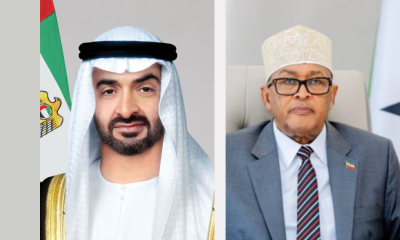
 Somaliland1 year ago
Somaliland1 year agoSomaliland and UAE Elevate Ties to Comprehensive Strategic Partnership




